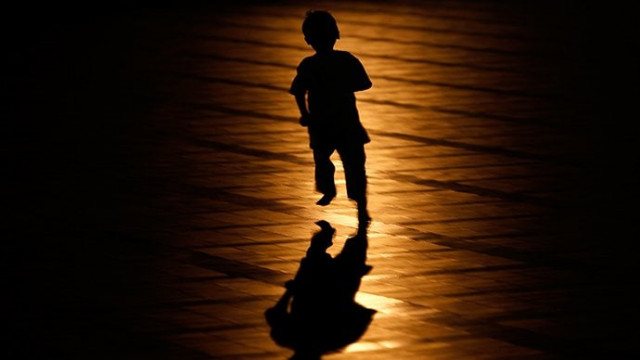Children continue to suffer amid K-P lockdown
Medical experts believe children are at risk of lasting psychological distress

A child running in the shadows. PHOTO: REUTERS
Young and old alike, all feel the impact of self-imposed confinement.
In Khyber-Pakhtunkhwa (K-P), Roamisa Khan feels she is serving a prison sentence. The seven-year-old now has nothing left on her to-do-list. “I’m done watching cartoons. Some of them I’ve watched multiple times,” Khan said, describing the time she spends at home.
Like millions, her age, Khan, spends much of her time at home. As the fear of the respiratory disease spreads and the number of positive cases rise in K-P, making it the third most affected province in the country after Punjab, parents are increasingly concerned about the wellbeing of their children.
The respiratory virus, according to mental health experts, will leave an indelible mark on children. “The lockdown will have a psychological and mental impact on children,” said Dr. Anila Atiq, a Peshawar-based physiologist. Most parents, Atiq said, end up talking about the number of deaths in front of their children. “That affects the mental health of children,” said the expert. The longer this situation goes on, Atiq said, the more of a concern it is.
The Peshawar-based mental health expert said, the near-constant chatter about super spreader and the constant cycle of information about its impact, not only increases fear and anxiety in adults but also children. Medical experts all over the world are growing increasingly worried about the long-term effects of this pandemic on children’s health and psychological development. They believe many are at risk of lasting psychological distress, including depression.
According to a global survey, almost one in four children living under Covid-19 lockdowns, social restrictions, and school closures are now dealing with feelings of anxiety.
Roamisa Khan has been at home for three months now. She describes her routine as monotonous. “I wake up early, but there is no school to go to. No friends, no classes, and no weekend to look forward to,” said Khan, who appears to be upset about the long self-imposed self-isolation at home.
According to the UN policy brief titled ‘The Impact of Covid-19 on children’, the global health crisis is having a profound effect on the wellbeing of children all over the world. “All children, of all ages, and in all countries, are being affected. This is a universal crisis, and for some children, the impact will be lifelong,” the UN document said.
Released in April, the document also talks about the impact of the pandemic on education. To prevent the spread of the Covid-19 virus, the document states, more than 188 countries have closed schools. The global lockdown is keeping 1.5 billion children away from schools and education.
Commenting on the issue, Imran Takkar, Project Coordinator, Group Development Pakistan, and activist, said: “The lockdown has resulted in an increase in domestic violence, which has a direct impact on children.” Early marriages, Takkar said, will also increase in the country. “I also see a dangerous increase in cases of online harassment,” the activist cautioned. While the direct impact of Covid-19 infection on children has, to date, been far milder than for other age groups, it appears the lockdowns and self-isolation will leave an indelible mark on their personalities. “What started as a global health challenge has snowballed into a formidable test for the young generation,” said one rights activist.
Published in The Express Tribune, June 16th, 2020.













COMMENTS
Comments are moderated and generally will be posted if they are on-topic and not abusive.
For more information, please see our Comments FAQ